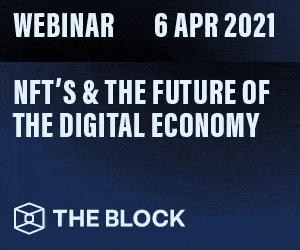Smaller Digital Euro Payments Could Be “Truly Anonymous” Says ECB Exec
Key Takeaways
- The European Central Bank has previously stated that anonymity would be impossible for digital euro transactions.
- ECB representative Fabio Panetta recently contradicted this statement, saying smaller transactions may be anonymous.
- It remains to be seen whether Panetta is referring to microtransactions.
The European Central Bank appears to have shifted its privacy stance on its upcoming digital currency, with ECB executive Fabio Panetta saying “For smaller amounts, we could permit truly anonymous payments.”
Europe Changes Its Tune on Digital Currency
Panetta’s statement contradicts a previous report published in October 2020 where the ECB stated “anonymity would not be possible” for payments on the planned digital currency.
However, Panetta clarified that anonymity would be for very small transactions only, adding that “in general, confidentiality and privacy are different from anonymity,” and stating that some anti-money laundering checks would be required for most transactions.
Panetta additionally affirmed that he believes central banks are better placed to protect privacy in digital payments. Speaking on behalf of the European Central Bank, he stated that the ECB has no commercial interest in user data, and could ensure that “nobody in the payment chain has access to all the information.”
While potential issues such as money laundering, financing terrorism, and tax evasion are all reasons for the ECB’s previous stance on traceable payments, for smaller amounts the risks are much lower. Panetta did not give an example of exactly how small anonymous payments would be.
However, he did state that small transactions of €70 or €100 could be settled offline, with no data recorded outside of the wallets of the payer and payee.
Why Is the ECB Pushing for a Digital Euro?
In the October 2020 report, the ECB announced the necessity for a central bank-issued cryptocurrency, listing two main reasons: increased demand for digital payments globally, and to compete with existing stablecoin and CBDC projects, such as China’s digital renminbi.
Along with restating these reasons in the Financial Times interview, Panetta added that adopting a central bank digital currency could help mitigate some of the risks of a future financial crisis, mentioning how a CBDC would be a “riskless” financial instrument and the liability of the central bank.
The information on or accessed through this website is obtained from independent sources we believe to be accurate and reliable, but Decentral Media, Inc. makes no representation or warranty as to the timeliness, completeness, or accuracy of any information on or accessed through this website. Decentral Media, Inc. is not an investment advisor. We do not give personalized investment advice or other financial advice. The information on this website is subject to change without notice. Some or all of the information on this website may become outdated, or it may be or become incomplete or inaccurate. We may, but are not obligated to, update any outdated, incomplete, or inaccurate information.
You should never make an investment decision on an ICO, IEO, or other investment based on the information on this website, and you should never interpret or otherwise rely on any of the information on this website as investment advice. We strongly recommend that you consult a licensed investment advisor or other qualified financial professional if you are seeking investment advice on an ICO, IEO, or other investment. We do not accept compensation in any form for analyzing or reporting on any ICO, IEO, cryptocurrency, currency, tokenized sales, securities, or commodities.
See full terms and conditions.
Source: Read Full Article



